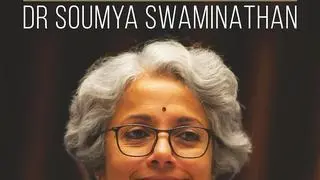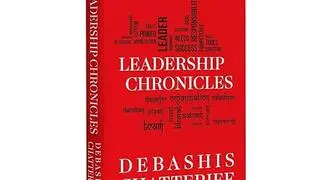Former RBI Governor Duvvurri Subbarao’s new book titled Just a Mercenary? offers a glimpse into his career and delves deep on conflicts and policy challenges he navigated through during his stint at the Finance Ministry and later at RBI.
Subbarao, RBI Governor from 2008-2013, who had earned a moniker ‘Baby Step Subbarao’ from analysts for his cautious monetary policy stance, chronicles his nearly four-decade career in this second book (first one, titled Who Moved My Interest Rates?, came out in 2016) published by Penguin.
The work explores his leadership insights, policy clashes with the Finance Ministry, and a tumultuous relationship with then Finance Minister P Chidambaram in the last one year of his term, along with his take on the 2G scam.
It also reveals how pressure by the government was not confined to RBI’s interest rate stance, but on occasions extended to pressuring the central bank to present rosier estimates of growth and inflation.
Excerpts from interview:
You have opted for a title ending with a question mark. What prompted you to do so?
I had considered several alternatives for the title and finally I zeroed in on this. The reason I chose this title is that as a person who has lived in this country, as a citizen of India, I felt that the country has given me so much. All of us are prone to complaining about the country, how our country is unequal, unjust. There is no opportunities for the really meritorious. But when I look back on my life and my career, I find that I’ve been so privileged and I got so much from the country. I studied in a sainik school with government scholarship. I went to MIT, where again I got a scholarship. I got to serve in the IAS. I got to become the governor of the Reserve Bank.
The country has given me so many opportunities and whatever job I got, I tried to do my best. But the question that constantly runs in my mind is what motivated me.
Was it just the idea that you must do your best because you’re getting paid or was I driven by a larger calling of giving back to society for all that I have received. So was I just a mercenary or was I more? That’s a question that has run in mind my mind, particularly as I was writing the book and I leave it to the readers to decide whether I was in fact a mercenary or not.
So why did you leave the judgment to the reader?
I thought it would be presumptuous on my part to answer that question myself, because I’m an interested party. I’ve tried to write the story as candidly and as honestly as possible. So I want people to read my story to decide if I were just a mercenary or not. I’m not trying to convey any message. I’m telling them my story and I’m encouraging them to form their own conclusion.
You have in the book argued the need to demystify Budget for the common man’s understanding. Where are we on this?
Thank you for asking this question. Accountability is the core of our democracy, so that’s why I believe demystification and dissemination is very important, particularly important in a lower awareness society like ours …Low literacy level society like ours.
You know, when I was Finance Secretary or RBI Governor I was supplying information. I was not a consumer of information so much. But now over the last 10 years as a private citizen in the country, I’ve consumed information given by the Reserve Bank and by the Finance Ministry. And I now appreciate the gaps in communication. What do people want?
Government is run by politicians and politicians, by definition, show a positive picture of what’s happening and try to suppress the negative. They try to show that the economy is growing at 7.5 per cent although some economists are saying that the underlying growth is only 6.5 per cent right. So there is some... not fudging data. I’m not saying that. But I’m saying that they’re projecting the positives and trying to suppress the negatives. That’s okay as that’s not unique to our country. That happens in every country in any government. But what I meant by demystification is that there is a need for the government and indeed for all public institutions such as Reserve Bank of India, SEBI or other regulators, other public institutions, to communicate with people at the level they understand.
So you feel there is some distance to go on the Budget demystification front even after a decade since you demitted office as RBI Governor?
Absolutely, there is long distance to go. My demitting office is not a watermark in the financial history of the country. What I’m saying is that we have a long way to go in demystification of the Budget — both at the Central and State levels.
The next issue in the book that has generated a lot of debate is about 2G scam. What is the main point on CAG audit that you have made?
Well, the message I want to give on 2G is that audit serves a very useful function. It is necessary in a democracy, an independent auditor, Constitution backed independent government auditor, but the auditor must respect the boundary lines.
My point is the locus standi of the Comptroller and Auditor General (CAG) to take up a special audit is unquestionable. However, the CAG’s decision to go into the question of ‘presumptive loss’ to the government and its methodology of quantifying that loss are questionable on several grounds.
The CAG’s methodology makes some assumptions which I believe are contestable. I have written about them, but that is okay. That is par for the course. You can debate them. More important than the estimate of presumptive loss, questionable as it was, was the CAG’s locus standi in questioning the right of the government to decide to sell spectrum at below market price.
But if the CAG is allowed to question presumptive loss, as you said, and as I’ve said in my book, then CAG will logically be in a position to question every tax concession in the Budget, saying that it is a presumptive loss. For example, the government cut corporate tax to 22 per cent in certain cases. By this count, the CAG can argue tomorrow that corporate tax rate cut is in some sense a presumptive loss and should be taken up for CAG audit.
You had a significant para in your book that there is little understanding and sensitivity within the government on the importance of central bank autonomy. Could you elaborate?
Before I answer your question, I want to say that I am talking about RBI and Government not in any particular context. You know, people have misinterpreted this as if it is in one particular political context. That’s not the case. I’m talking institutional. You know, there is government, there is the central bank and within the government, no matter who the finance minister is, and within the RBI, no matter who the governor is and no matter what the political situation is. Governments tend to look upon RBI as part of the larger public institutional framework. And they cannot reckon with the arm’s length relationship.
And if you look at it, there is the government, there are the regulators, there are the markets and there’s the larger public. They are four different segments. Governments tend to internalise regulators — financial sector regulators as part of the government system. And say that together we will evolve the public policy, because all of us have similar goals. Without realising that the central bank or regulators, acting independently actually helps improve policy outcomes.
So that’s the point I was trying to make. So I want to once again say that I’m not talking about one particular political context. It is institutionally structured that way.
What more can be done to ensure that central bank autonomy isn’t compromised on any count by the government of the day?
I think it’ll come with experience and maturity, I don’t think it’s some institutional structure that can engineer this. I’ll give you an example. In the US, President Trump said lots of things about the Federal Reserve. He said the Fed has gone crazy….They’re boneheads…They don’t know what they’re doing. The number one enemy is not China. #1 Enemy is the Federal Reserve.
Our finance ministers and our prime ministers don’t say that. In fact if they say that the markets will collapse. In the US, even though Trump had said all that, the markets just brushed them off, because institutions there are mature. We must recognise that our institutions are not yet mature. So if the finance minister says the RBI has gone crazy, then the markets would collapse. The finance minister cannot afford to say that in India.
We must get to a stage where the markets will understand that there are differences. But the central bank is independent, is not going to be influenced by these outbursts. If you get to that stage, the RBI will be independent and that has to come with maturity of institutions, not by some institutional arrangements.
You have also highlighted in the book that discourse in Indian context is much more civilised.
Yeah, of course the discourse in Indian context is much more civilized. I hope you will also highlight that.
What is your take on frequent policy related skirmishes between the Finance Ministry and the RBI? What can be done to strengthen the role of monetary policy.
You know all the differences between the government and the central bank... To some extent, they’re hardwired to resist. The government is driven by short-term compulsion. The RBI is mandated to look at long-term sustainability. And there is typically a conflict between long-term sustainability and short-term compulsions.
The question is, how do you resolve this? Of course, the RBI must consult the government, and indeed it consults many stakeholders. It must also consult the government because the government is by far the biggest stakeholder of the monetary policy. The RBI must explain to the government its position and the way it interprets the economic situation, the government must explain its position. The RBI should be open minded and if the government does indeed have a point, it should take that into account. But if it comes to an impasse or a difference, the RBI must listen to the government, but act in the larger public interest, because that is what it is enjoined to do.
Which role did you thoroughly enjoy and found it challenging — your role as Finance Secretary or as RBI Governor?
That’s a difficult choice to make. Because as Finance Secretary, I was a civil servant with the political masters working in a large structure, the government, with lots of checks and balances. On the other hand, as governor of the RBI, I was head of an institution with responsibility for macroeconomic management but at an arm’s length from the government. So it’s difficult to choose between the two.







